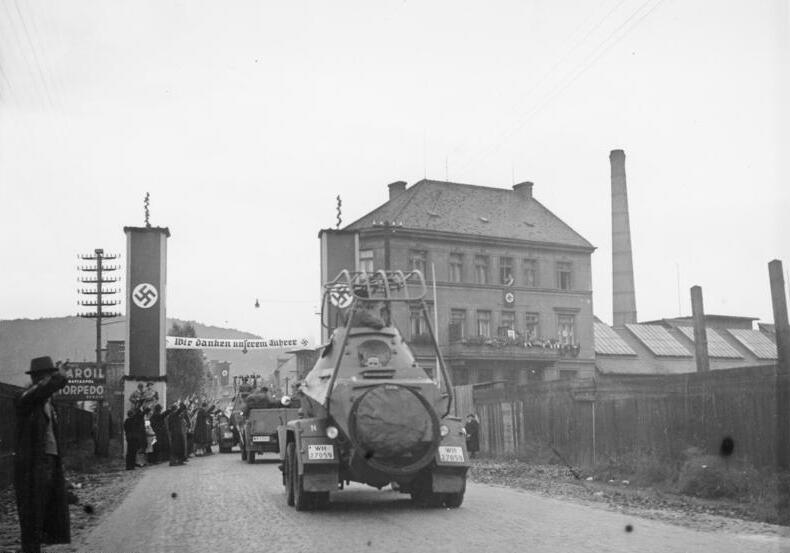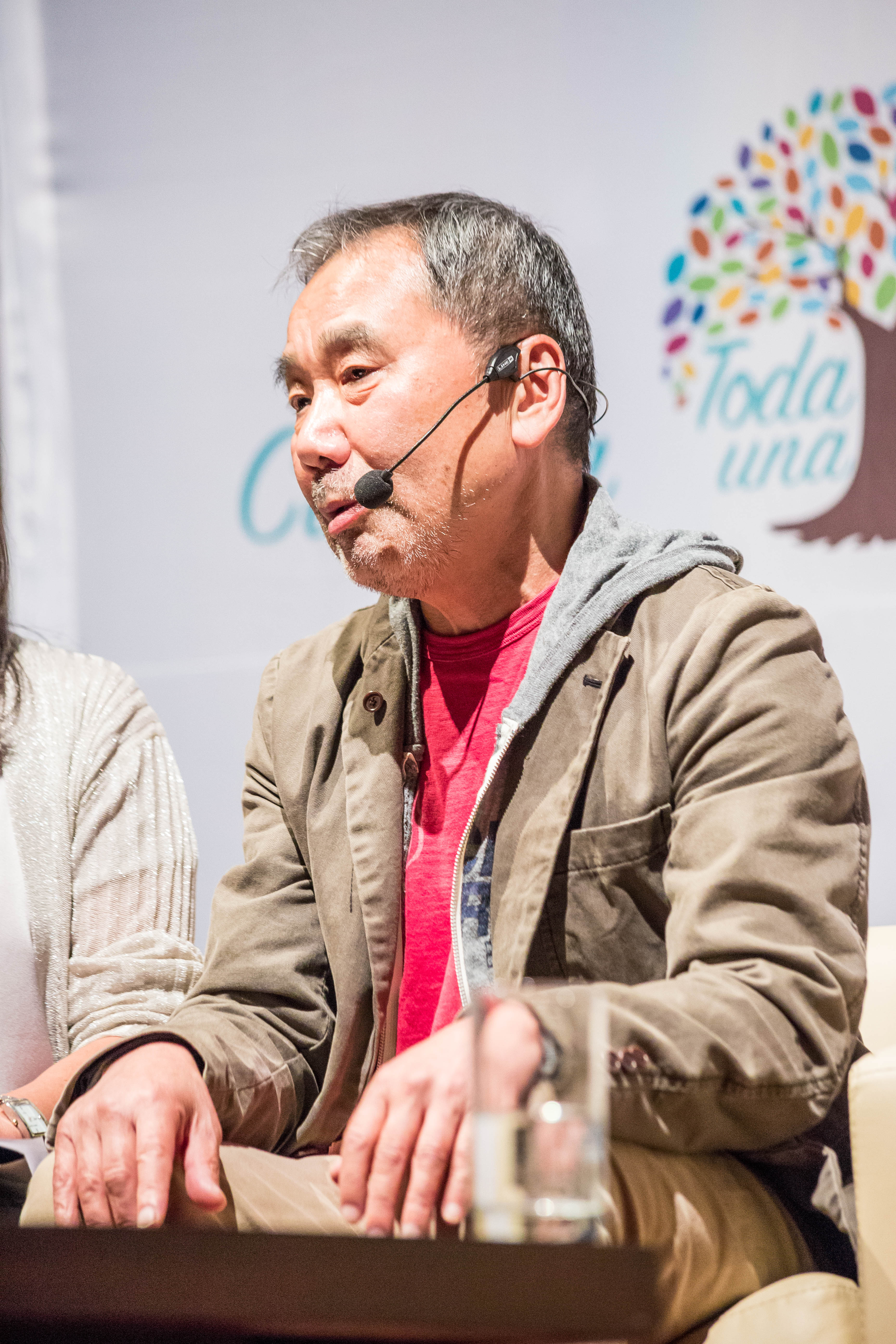|
Sigrid Löffler
Sigrid Löffler (born 26 June 1942) is an Austrian cultural commentator, arts correspondent and literary critic. Life Sigrid Löffler was born in Ústí nad Labem, Aussig (as it was known till Expulsion of Germans from Czechoslovakia, 1945) in German occupation of Czechoslovakia, Czechoslovakia, at the height of the Second World War. As she later spelled out to an interviewer, she was presumably conceived while :de:Fronturlaub, her father was on leave from the frontline. Her mother's family came from the northern border region of Bohemia that had more recently become known as the Sudetenland. During the Flight and expulsion of Germans (1944–50), ethnic cleansing of 1945 her mother took her to rejoin her father in Vienna where he was rebuilding his peace-time career as a teacher. It was in Vienna - under Allied-occupied Austria, military occupation till 1955 - that she grew up, acutely aware of her "outsider status" as a Protestant in a conservative city determined, during ... [...More Info...] [...Related Items...] OR: [Wikipedia] [Google] [Baidu] |
Ústí Nad Labem
Ústí nad Labem (, , ) is a city in the Czech Republic. It has about 92,000 inhabitants. It is the capital of its eponymous region and district. It is a major industrial centre and, besides being an active river port, is an important railway junction. Administrative division Ústí nad Labem is divided into four boroughs, which are further divided into 22 administrative parts: *Ústí nad Labem-město (parts Ústí nad Labem-centrum, Božtěšice, Bukov, Habrovice, Hostovice, Klíše, Předlice, Skorotice, Strážky, Vaňov and Všebořice); *Ústí nad Labem-Neštěmice (parts Krásné Březno, Mojžíř and Neštěmice); *Ústí nad Labem-Severní terasa (part Severní Terasa); *Ústí nad Labem-Střekov (parts Brná, Církvice, Kojetice, Olešnice, Sebuzín, Střekov and Svádov). Etymology The name of Ústí nad Labem is formed from the Old Czech ' ("river mouth") and ' (the Elbe River). It thus literally means "Mouth-upon-the-Elbe", in reference to its location at the ... [...More Info...] [...Related Items...] OR: [Wikipedia] [Google] [Baidu] |
Die Zeit
''Die Zeit'' (, "The Time") is a German national weekly newspaper published in Hamburg in Germany. The newspaper is generally considered to be among the German newspapers of record and is known for its long and extensive articles. History The first edition of ''Die Zeit'' was first published in Hamburg on 21 February 1946. The founding publishers were Gerd Bucerius, Lovis H. Lorenz, Richard Tüngel and Ewald Schmidt di Simoni. Another important founder was Marion Gräfin Dönhoff, who joined as an editor in 1946. She became publisher of ''Die Zeit'' from 1972 until her death in 2002, together from 1983 onwards with former German chancellor Helmut Schmidt, later joined by Josef Joffe and former German federal secretary of culture Michael Naumann. The paper's publishing house, Zeitverlag Gerd Bucerius in Hamburg, is owned by the Georg von Holtzbrinck Publishing Group and Dieter von Holtzbrinck Media. The paper is published weekly on Thursdays. As of 2018, ''Die Zeit' ... [...More Info...] [...Related Items...] OR: [Wikipedia] [Google] [Baidu] |
Gertrud Fussenegger
Gertrud Fussenegger (8 May 1912 – 19 March 2009) was an Austrian writer and a prolific author, especially of historical novels. Many commentators felt that her reputation never entirely escaped from the shadow cast by her enthusiasm, as a young woman, for National Socialism. Life Provenance and early years Gertrud Anna Fussenegger was born in Pilsen, a flourishing manufacturing city in Bohemia which at that time was a Crown land of the Austrian Empire. She came from a military family. Emil Fussenegger, her father, was an Imperial and Royal army officer originally from Vorarlberg. Her mother, born Karoline Hässler, was from Bohemia. She grew up in Neu Sandez (then in Galicia), Dornbirn (Vorarlberg) and Telfs ( North Tirol). She enrolled at the Mädchen-Realgymnasium (girls' secondary school) in Innsbruck in 1923. After her mother died in 1926 she moved back to Pilsen – by now part of Czechoslovakia – where she lived with her grandparents. It was at the "Refo ... [...More Info...] [...Related Items...] OR: [Wikipedia] [Google] [Baidu] |
Alfred Toepfer Stiftung F
Alfred may refer to: Arts and entertainment *'' Alfred J. Kwak'', Dutch-German-Japanese anime television series * ''Alfred'' (Arne opera), a 1740 masque by Thomas Arne * ''Alfred'' (Dvořák), an 1870 opera by Antonín Dvořák *"Alfred (Interlude)" and "Alfred (Outro)", songs by Eminem from the 2020 album '' Music to Be Murdered By'' Business and organisations * Alfred, a radio station in Shaftesbury, England *Alfred Music, an American music publisher *Alfred University, New York, U.S. *The Alfred Hospital, a hospital in Melbourne, Australia People * Alfred (name) includes a list of people and fictional characters called Alfred * Alfred the Great (848/49 – 899), or Alfred I, a king of the West Saxons and of the Anglo-Saxons Places Antarctica * Mount Alfred (Antarctica) Australia * Alfredtown, New South Wales * County of Alfred, South Australia Canada * Alfred and Plantagenet, Ontario * Alfred Island, Nunavut * Mount Alfred, British Columbia United States * Alfred, Ma ... [...More Info...] [...Related Items...] OR: [Wikipedia] [Google] [Baidu] |
Iris Radisch
Iris Radisch (born 2 July 1959) is a German literature-journalist. Since 1990 she has written for the mass-circulation weekly newspaper, ''Die Zeit''. More recently she has come to wider prominence through her television work. Biography Iris Radisch was born in West Berlin (as it was known at that time). She attended university at Frankfurt and Tübingen, studying German studies, Romance studies and Philosophy. She then moved into journalism, working as a literary editor with the ''Frankfurter Rundschau'', a mass-market daily newspaper. Her switch to ''Die Zeit'' came in 1990. As a regular contributor to the paper's Feuilleton (arts and literature) section she gained a reputation as a perceptive, original, but sometimes also starkly polemical literature critic, able to deliver her judgments with a rare level of authority. She was able to combine her journalism with guest professorships, notably at Saint Louis University and at University of Göttingen. She also began to app ... [...More Info...] [...Related Items...] OR: [Wikipedia] [Google] [Baidu] |
South Of The Border, West Of The Sun
is a short novel by Japanese author Haruki Murakami, first published in 1992. Plot The novel tells the story of Hajime, from his childhood in a small town in Japan to his adult years in Tokyo. He meets Shimamoto, a girl with polio and a fellow only child. They spend their time together talking about their interests in life and listening to records on Shimamoto's stereo. They are separated in their high school years, and grow apart. They are reunited in their thirty-sixth year. Hajime is now the father of two children and owner of two successful jazz bars. Shimamoto gives no details of her own life and appears only at random intervals, haunting him as a constant " what-if". Meeting Shimamoto again sets off a chain of events that forces Hajime to choose between his young family and the magic of the past. Main characters Hajime Hajime grows up in a small family as an only child. Many think that not having siblings means one must be spoiled by their parents, sickly, and extremely ... [...More Info...] [...Related Items...] OR: [Wikipedia] [Google] [Baidu] |
Haruki Murakami
is a Japanese writer. His novels, essays, and short stories have been bestsellers in Japan and internationally, with his work translated into 50 languages and having sold millions of copies outside Japan. He has received numerous awards for his work, including the Gunzou Prize for New Writers, the World Fantasy Award, the Frank O'Connor International Short Story Award, the Franz Kafka Prize, and the Jerusalem Prize. Growing up in Kobe before moving to Tokyo to attend Waseda University, he published his first novel '' Hear the Wind Sing'' (1979) after working as the owner of a small jazz bar for seven years. His notable works include the novels '' Norwegian Wood'' (1987), '' The Wind-Up Bird Chronicle'' (1994–95), '' Kafka on the Shore'' (2002), and ''1Q84'' (2009–10), with ''1Q84'' ranked as the best work of Japan's Heisei era (1989–2019) by the national newspaper ''Asahi Shimbun'' survey of literary experts. His work spans genres including science fiction, fantasy, and ... [...More Info...] [...Related Items...] OR: [Wikipedia] [Google] [Baidu] |
Marcel Reich-Ranicki
Marcel Reich-Ranicki (; 2 June 1920 – 18 September 2013) was a Polish-born German literary critic and member of the informal literary association Gruppe 47. He was regarded as one of the most influential contemporary literary critics in the field of German literature and has often been called ''Literaturpapst'' ("Pope of Literature") in Germany.WHO'S WHO profile: Marcel Reich-Ranicki Life Early life Marcel Reich was born on 2 June 1920 in , ,[...More Info...] [...Related Items...] OR: [Wikipedia] [Google] [Baidu] |
ORF (broadcaster)
('Austrian Broadcasting Corporation'; ORF) is an Austrian national public broadcaster. Funded from a combination of television licence fee revenue and limited on-air advertising, ORF is the dominant player in the Austrian broadcast media. Austria was the last country in continental Europe after Albania to allow nationwide private television broadcasting, although commercial TV channels from neighbouring Germany have been present in Austria on pay-TV and via terrestrial overspill since the 1980s. History of broadcasting in Austria The first unregulated test transmissions in Austria began on 1 April 1923 by Radio Hekaphon, run by the radio pioneer and enthusiast Oskar Czeija ( de; 1887–1958), who applied for a radio licence in 1921; first in his telephone factory in the Brigittenau district of Vienna, later in the nearby TGM technical college. On 2 September, it aired a first broadcast address by Austrian President Michael Hainisch (1858–1940). One year later, a powe ... [...More Info...] [...Related Items...] OR: [Wikipedia] [Google] [Baidu] |
West Germany
West Germany is the colloquial term used to indicate the Federal Republic of Germany (FRG; german: Bundesrepublik Deutschland , BRD) between its formation on 23 May 1949 and the German reunification through the accession of East Germany on 3 October 1990. During the Cold War, the western portion of Germany and the associated territory of West Berlin were parts of the Western Bloc. West Germany was formed as a political entity during the Allied occupation of Germany after World War II, established from eleven states formed in the three Allied zones of occupation held by the United States, the United Kingdom, and France. The FRG's provisional capital was the city of Bonn, and the Cold War era country is retrospectively designated as the Bonn Republic. At the onset of the Cold War, Europe was divided between the Western and Eastern blocs. Germany was divided into the two countries. Initially, West Germany claimed an exclusive mandate for all of Germany, representing itself ... [...More Info...] [...Related Items...] OR: [Wikipedia] [Google] [Baidu] |



